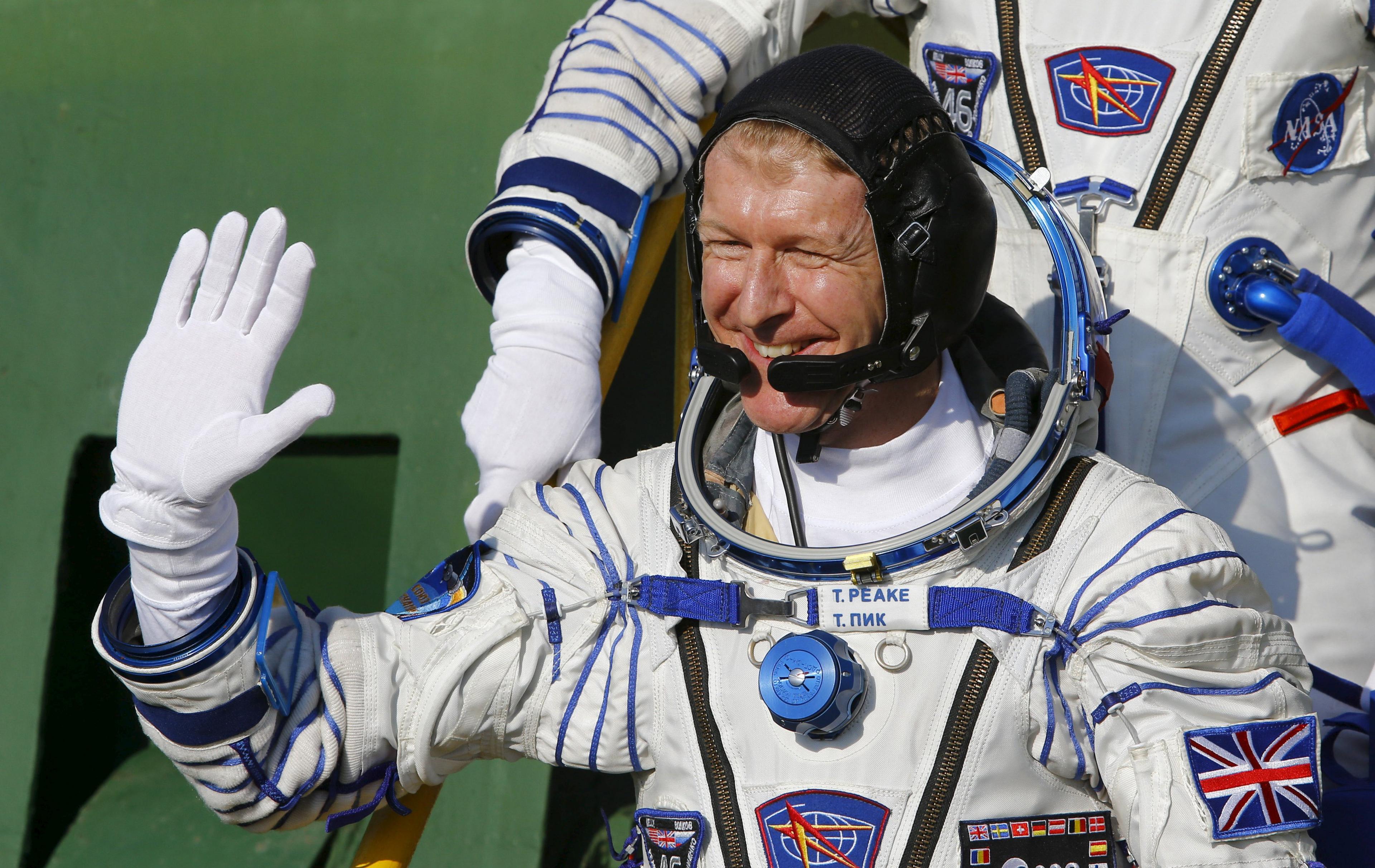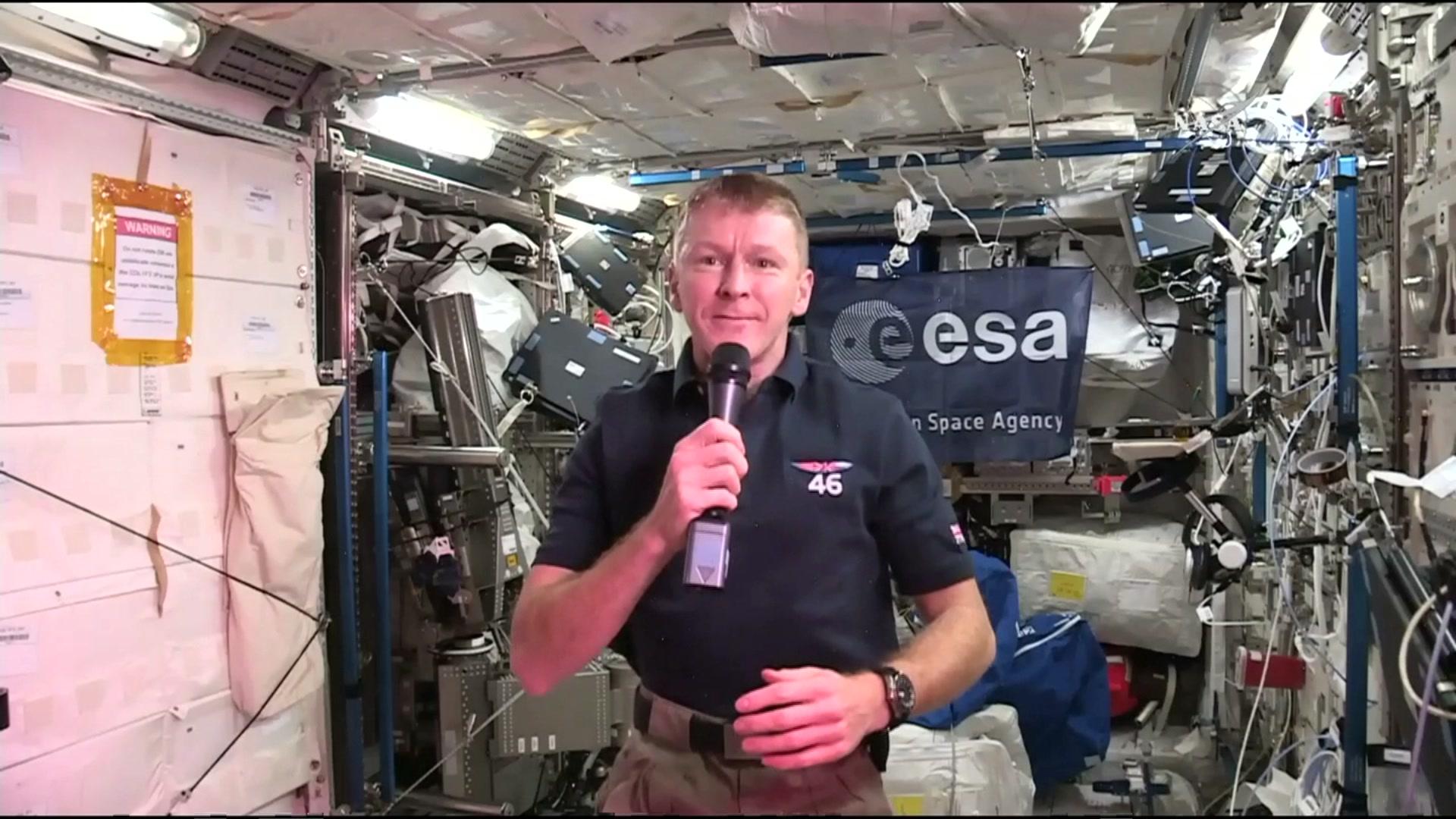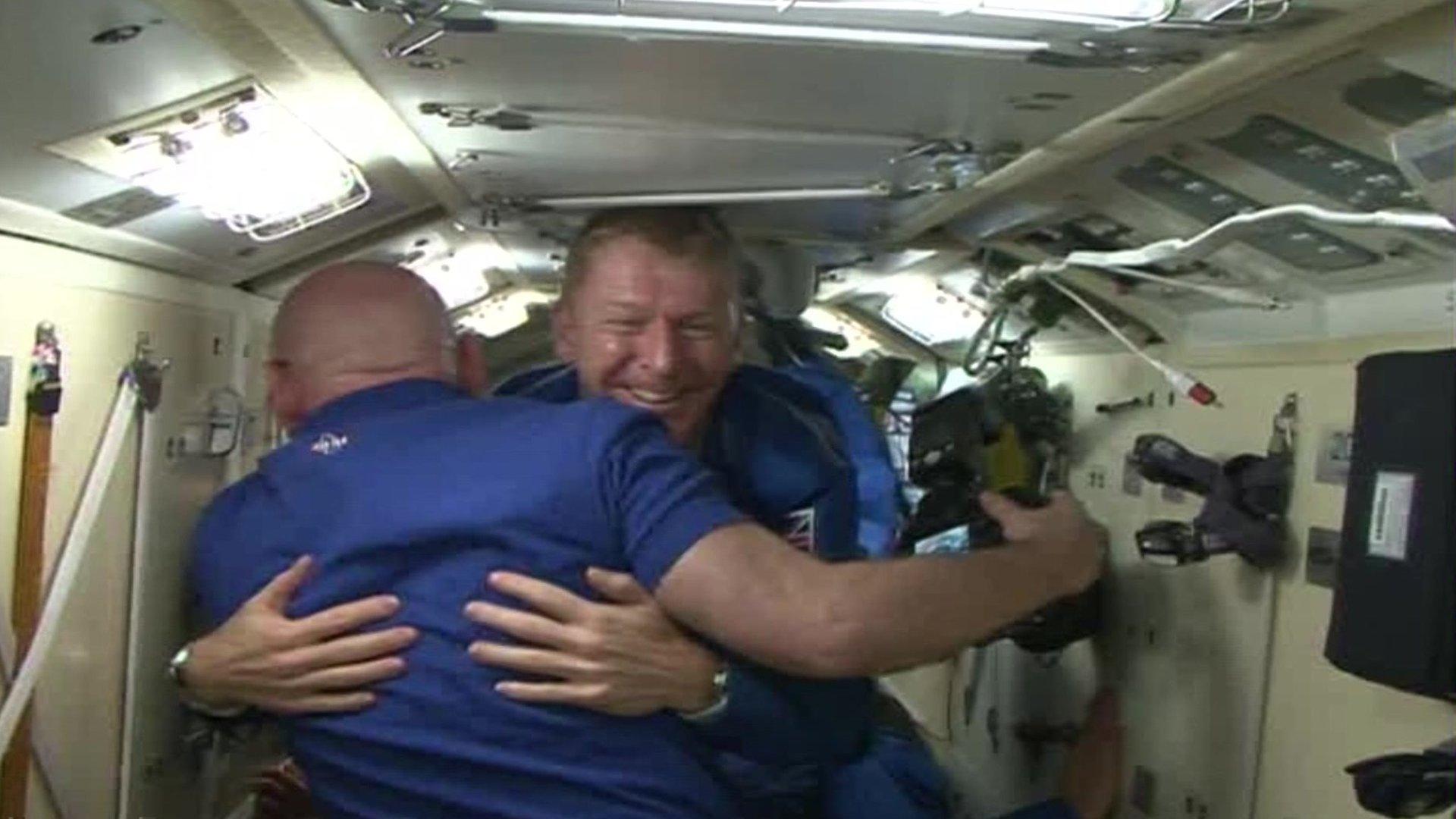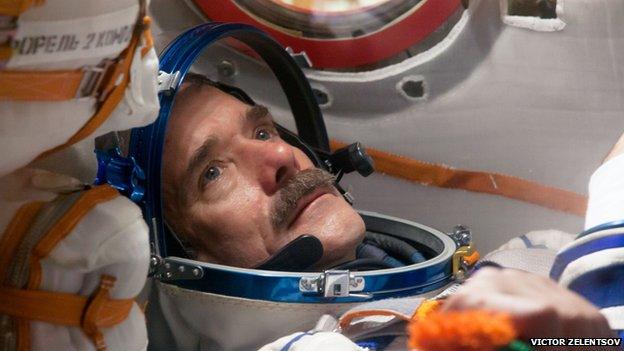Tim Peake: Itinerary for a stay in space
- Published

So "Major Tim" has successfully made it into space. What's on his itinerary for the next six months?
A strict schedule to follow between wake-up time and bed
Life on board the International Space Station (ISS) runs to a strict schedule, with crew members given a rigorous timetable by their respective mission controls in the US, Russia and Europe.
Chris Hadfield, the Canadian astronaut who spent five months on the ISS two years ago, told BBC Inside Science, what a typical day was like on board.
At six am, your alarm goes off and you have to physically remove the sleep from your eyes "because your eyes are sort of glued shut," he explains.
Then - after using the bathroom and getting cleaned up - you look at your schedule for the day and talk to mission controls around the world.
They tell you: "This is the briefing for the day, this is the science, these are the things that are broken, things that we are fixing, what we're doing," he says.
"Then each person follows a completely individual agenda during the day, down to five minute increments. So Houston and Moscow completely control your time."
He says tasks may include working on a suite of experiments, fixing hardware, exercising or perhaps talking to the Prime Minister.
At dinner time, crew members gather to eat, before talking to mission control again about the next day.
"And then drift off to sleep and then repeat seven days a week and then repeat for six months," he adds.
Stealing time to look out of the window
With the Earth spinning beneath you every 92 minutes, you'd think it would be the perfect excuse to stare out of the window.
But Chris Hadfield - one of the first Canadians to go on the ISS - laughs at the suggestion.
"There's no time schedule to float and look out the window - none," he says.
"And yet we do of course - we steal time when we're supposed to be asleep."
He says you steal every moment you can to not miss the experience.
"The rolling magnificence of the world pouring by is almost an insult if you don't honour it by spending time trying to soak it up."
A list of experiments to carry out
Around 200 experiments are taking place on the ISS.
The tally since human crews joined the ISS 15 years ago is almost 2,000.
Read more about the science experiments
One of the most significant is the Alpha Magnetic Spectrometer, external physics experiment.
"It's collecting sub-atomic particles from the universe," says Colonel Hadfield.
"If we truly want to get to the core of understanding power generation and where gravity comes from - and wormholes and origins and futures - we have to understand the very nature of the universe and that's tied up in the sub-atomic particles."
Other experiments include particles in fluids, fluid physics and human physiology.
And then there's Earth observation.
"It's an unprecedented way to measure the health of the Earth - visually, through its temperature, through its cloud cover, through all the different spectra."
The threat of nasty health complaints
Human health is also on the agenda - as you are a human guinea pig.
"The first time that you use the loo in space, the first time you go to the bathroom, your urine is full of your skeleton," Hadfield told BBC Inside Science.
"Within a few hours of getting there, your urine is now full of calcium and minerals from your skeleton.
"For whatever reason, your body says 'oh weightlessness, you don't need a skeleton anymore' and starts to give you osteoporosis."
He says the opposite happens on the way home - and osteoporosis can go into reverse, which is of great medical interest.
"And our heart shrinks and our arteries harden and our vision changes and our immune system is suppressed - there are all sorts of things that mimic ageing."
He says he will have medicals every year with Nasa for the rest of his life.
Getting used to be the new kid on the block
Colonel Hadfield says Tim Peake will be spending his first few days in space getting properly moved in and getting used to the physical effects of space.
"You're so clumsy and nauseous and you feel like you have this horrible head cold and you have a sinus headache and everything's going so fast.
"You've studied like crazy but it's still you're the new kid on the block and you don't know what you're doing.
"He'll get over that really soon and in a little while he'll be able to get into maybe a slightly more perspective-rich comprehension of where he is, which is magnificent right up to the day when he is going to put that pressure suit on and return."
Follow Helen on Twitter, external.


Tim Peake in space: Want to know more?
Special report page: For the latest news, analysis and video
Video: Bye bye Daddy
In pictures: Flight to the space station
Explainer: How do I become an astronaut?
- Published18 December 2015

- Published15 December 2015

- Published10 December 2014
